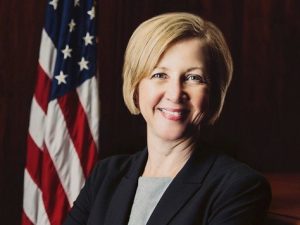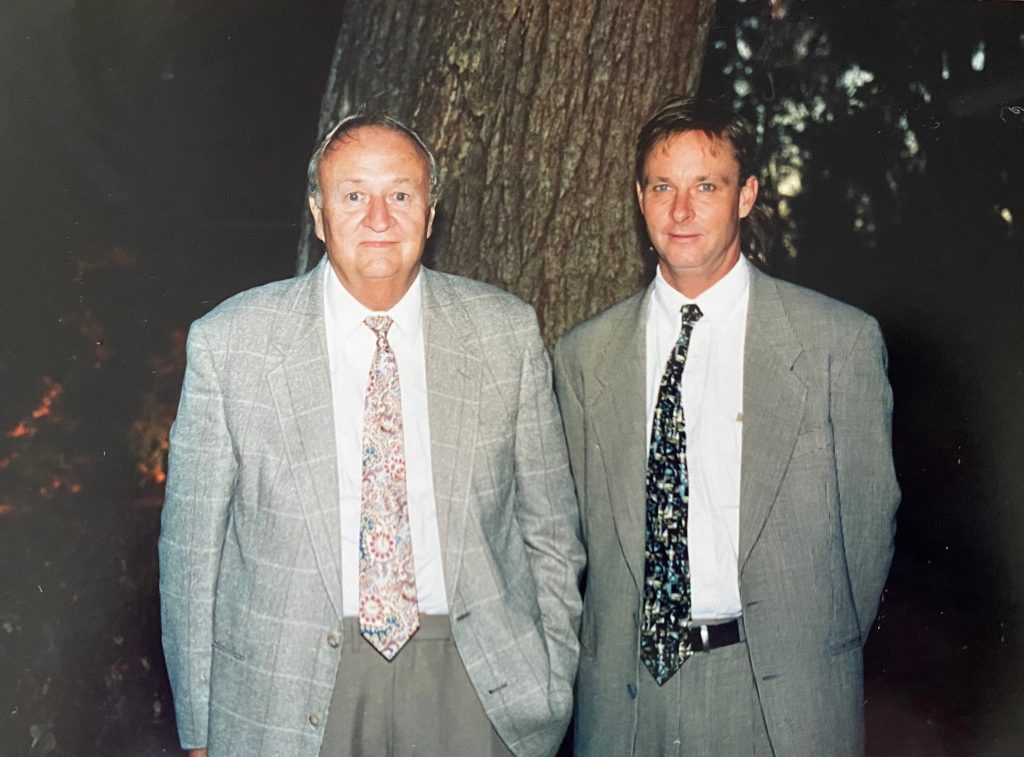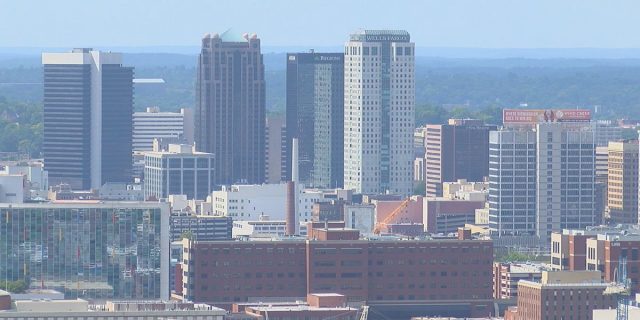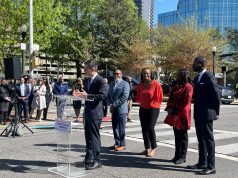By Sydney Melson
The Birmingham Times

Martha Cook, a Jefferson County district court judge, knew it was time to speak just as Charles “Chuck” Morgan Jr., a prominent Birmingham attorney, knew it was time to speak when the Sixteenth Street Baptist Church was bombed in 1963 when he lived in the city.
Morgan gave an impassioned speech at the Young Men’s Business Club (YMBC) in the wake of the bombing that killed four little girls. “Every last one of us is condemned for that crime,” he said. “We all did it.”
Fast forward to Birmingham and America in 2020 in the wake of civil unrest and the deaths of George Floyd, Breonna Taylor, Ahmaud Arbery and others.
Cook, a current member of the YMBC, was in a meeting with the group several months ago when she raised her hand to speak and said “we’ve got a lot of resources here at YMBC and we should do something during this time of Black Lives Matter to make Birmingham better. Birmingham has been fighting racism since the city began, so we could really make some changes and do great things.”
The YMBC, which has roughly 60 members of all genders and ages, is a civic organization that meets weekly for the members to learn more about what is happening in their community.
Some of the members reached back into history and found a tie between what happened with the group during the Civil Rights Movement and today.
With that the Morgan Project, named after the tenacious lawyer who spoke in 1963, was established to fund active and meaningful steps to combat racism and develop a place for citizens to discuss the effects of racism on society, as well as build a school curriculum for middle to high school students on topics such as the history of racism.
Inspiration for the Morgan Project came following the death of Floyd in May and seeing injustice and violence against people of color on TV, her smartphone and social media, Cook said.
“I just reached a point where I thought: I am not going to be one of those people who sits back and says that’s just an anomaly… It happens daily, we have got to do something,” she said.
“We Have To Step Up”
After she spoke at the YMBC meeting, Cook remembers talking to other members. “I told them that we have to step up and say something and do something,” she said. The response from some was to form a committee. “If I had not had those responses, I don’t know what I would have done.”
Cook said she learned about Morgan Jr.’s “A Time to Speak” address which led to The Morgan Project and a way to carry on his legacy, to stick up for the underdogs,” she said.

Julie Levinson-Gabis, who handles public relations for the project, said “we wanted to call it The Morgan Project because if you see something wrong, you speak up based on [Morgan’s] principles. We know we’ll never fully eradicate racism, but we can continue dialogue about it.”
She said Morgan Jr. was involved in the 1964 case United States Supreme Court case that determined state legislative electoral districts must be equal in population, the “one man, one vote,” or equal representation case. Morgan Jr. also argued for the right of women and African Americans to sit on a jury and represented legends in court such as Martin Luther King Jr. and John Lewis.
The project gained steam and meetings were held every Friday to develop ideas, said Levinson-Gabis.
“We want to create a ‘speaker’s bureau,’ where people who have dealt with their own struggles [in racism] can talk in schools or with businesses,” she said. “But our main focus to make some kind of curriculum in schools that deals with bias and racism.”
The group felt strongly about teaching youth how and why systemic racism appears in society, and the consequences, she said. “What is white privilege? Or when Black people try to build wealth, such as with homeownership, there are instances where you cannot get a mortgage loan, or you have higher interest rates. Why do those things happen?,” she said.
Morgan Jr. published a book shortly after his speech. Levinson-Gabis said the group wanted to base their school curriculum around his book, but it’s currently out of print. “Copies of the book go for around $400 on eBay,” she said.
The Morgan Project reached out to The University of Alabama Press to print roughly 1,000 copies of the book. It also reached out to filmmaker Billy Field, who is interested in creating a documentary about Charles Morgan and The Morgan Project. “Everything is just falling together,” Levinson-Gabis said.
Levinson-Gabis said the Project also reached out to Morgan Jr.’s son, Charles Morgan III. “He was very flattered and happy, and immediately made a donation to the organization.”
Morgan Family Supports Project

The committee also reached out to Morgan Jr.’s son, Charles Morgan III, who now runs several Chuck’s Fish restaurants in Alabama and Florida and was flattered by the group’s efforts.
“My grandfather grew up in a really poor area of the mountains of Eastern Kentucky, one of nine children,” Morgan said. “[Morgan Jr.’s] activism didn’t come from his parents. They were too busy trying to survive, but they believed in a level playing field.”
Morgan said his dad saw his privilege being male and white. “He realized there were tremendous advantages and in Birmingham it was rather obvious,” Morgan said. “There were a lot of people who didn’t have any of those advantages simply because of the color of their skin.”
He recalled his dad’s first big case defending Tom Reeves, a Birmingham Southern student who was expelled for participating in Civil Rights sit-ins in 1960.
As Morgan Jr.’s work increased with the Civil Rights movement, contempt for the lawyer and threats from the Ku Klux Klan forced the family to move out of Birmingham to Washington, D.C.
Morgan said he has seen parallels between the civil rights movement of the 60’s and today’s unrest. Cameras have been an important part of holding people accountable, he said. “[Without cameras] the March over the Selma bridge would have been a tree falling in the forest.”
Morgan said he’s pleased to see young people from all walks of life “outraged” by today’s social injustice. “Unlike me, they grew up in a much more integrated society than I did. Their social media pivoted to things regarding race immediately and stayed that way for months, I was so overwhelmed,” he said.
Updated at 8:43 pm on 10/17/2020 to correct headline to clarify the YMBC is civic group.





